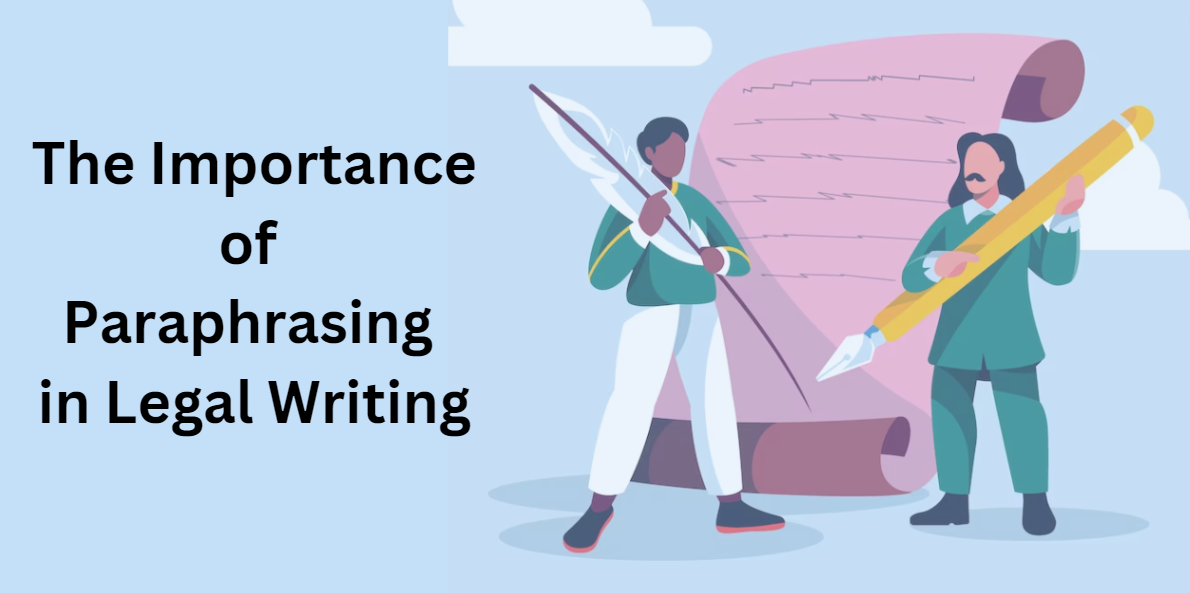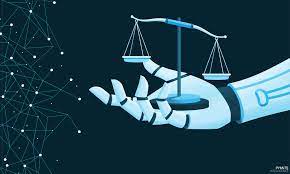Introduction
The act of rephrasing a text in one’s own words without altering its meaning is known as paraphrasing. When composing intricate legal texts and documents, it is a vital tool for legal writers. Paraphrasing assists legal writers in conveying information or legal writing to their audience in an accurate and clear manner.
Paraphrasing in legal writing is the process of rephrasing a legal text’s or document’s content without changing its meaning. This method is frequently used by legal writers to make sure that their work adheres to audience expectations while avoiding plagiarism.
This article will explore the importance of paraphrasing in legal writing. It will go over how paraphrasing can help legal writers avoid plagiarism, improve their writing’s clarity and readability, and guarantee its accuracy.
Explanation of Legal Writing
In the legal profession, a particular writing style called “legal writing” is employed. It is a very specialized type of writing that seeks to effectively convey legal concepts and information. Legal memos, briefs, and pleadings are just a few examples of the different types of legal writing. Since it is the primary method of communication among legal professionals, legal writing is crucial in the legal profession. Lawyers and judges can effectively express their thoughts and ideas through legal writing.
Importance of Paraphrasing in Legal Writing
The ability to effectively communicate complex legal concepts and ideas is why paraphrasing is a crucial tool for legal writers. Legal writing frequently uses jargon and technical terms that can be difficult for readers to comprehend. Legal writing can be made more understandable and accessible by paraphrasing.
Avoiding Plagiarism in Legal Writing
- Plagiarism in legal writing refers to using another person’s work without giving them proper credit. It is a severe ethical violation that can lead to legal consequences and damage the credibility of the writer.
- Plagiarism can take various forms, including copying and pasting text from another source, paraphrasing without proper attribution, and using someone else’s ideas without giving them proper credit.
- Plagiarism can have serious negative effects on legal writers, including ethical and legal repercussions. The writer’s credibility and reputation as a professional may also suffer from it.
- The negative impact on the credibility and ethical violations Legal professionals need to uphold their reputations and moral principles. These values are undercut by plagiarism, which also carries serious repercussions for the author.
Also Read: Legal Writing Tool That Every Law Student Should Know
Importance of Paraphrasing to Avoid Plagiarism
To prevent plagiarism, legal writers must use paraphrasing as a crucial tool. It facilitates the rewording of legal texts and documents without exact replication by authors. You can use the paraphrasing tool to prevent plagiarism in a fast way. Legal writers are required to give due credit to the sources they use in their writing. Giving credit to the original author while accurately communicating information is made possible by paraphrasing.
Enhancing Clarity and Readability
Legal documents frequently contain jargon and technical terms that the reader may not be familiar with. As a result, readability and clarity are crucial components of legal writing. Legal writers must make sure that their documents are readable by the intended audience in order to fulfil the purpose of legal writing, which is to convey information and ideas in a clear and understandable manner. Legal documents that are clear and easy to read are more likely to be understood by judges, attorneys, and other legal professionals.
Paraphrasing Can Improve Clarity and Readability
Paraphrasing is an effective technique for improving the clarity and readability of legal documents. Restating information in one’s own words while upholding the original meaning and intent is known as paraphrasing. Legal writers can make difficult concepts and ideas simpler for readers to understand by paraphrasing.
For example, a legal document might have a convoluted sentence that is challenging to understand. The legal writer can increase the document’s readability and clarity by breaking the sentence up into smaller chunks and paraphrasing the information. Paraphrasing can also assist in avoiding repetition and redundancy, which can reduce the document’s overall quality.
Examples of Effective Paraphrasing in Legal Writing
Here are some examples of how effective paraphrasing can be used in legal writing:
Original sentence: The court found that the defendant acted with malice aforethought when he committed the crime.
Paraphrased sentence: The court determined that the defendant had the intention to commit the crime when he acted.
In this example, the legal writer has rephrased the sentence to make it more succinct and understandable. Although the language has been simplified, the original sentence’s meaning has been retained.
Original sentence: The evidence was conclusive that the defendant had been present at the scene of the crime.
Paraphrased sentence: The available evidence indicated that the defendant was at the scene of the crime.
In this example, the sentence has been paraphrased by the legal writer to make the text easier to read. The original sentence’s meaning is retained, but the language has been simplified and made clearer.
Ensuring Accuracy in Legal Writing
The writing of legal documents must be accurate. Legal documents must accurately reflect the law and legal principles as well as being factually accurate. Writing errors can have serious repercussions, such as diminished credibility and legal liability. Legal writers must therefore make sure that their work is accurate and error-free.
Paraphrasing can be used to ensure accuracy in legal writing. Legal writers must make sure to preserve the original meaning and intent of the information they are paraphrasing when doing so. This makes it less likely that information will be misrepresented or interpreted incorrectly. Paraphrasing can also assist in ensuring that legal documents are free of mistakes and inconsistencies.
Examples of Accurate Paraphrasing in Legal Writing
Here are some examples of how paraphrasing can be used to ensure accuracy in legal writing:
Original sentence: The defendant’s actions constituted a breach of contract.
Paraphrased sentence: The defendant failed to fulfil the terms of the contract.
In this example, the legal writer has paraphrased the sentence to accurately reflect the meaning of the original sentence.
Original sentence: The plaintiff suffered damages in the amount of $10,000.
Paraphrased sentence: The plaintiff incurred losses totalling $10,000.
In this example, the legal writer has paraphrased the sentence to ensure accuracy and consistency in the use of terminology.
Conclusion
Legal writing can benefit greatly from paraphrasing to ensure accuracy. It permits the writer to restate difficult legal concepts in a manner that is clear and concise and thus easier for readers to comprehend. Additionally, by paraphrasing, authors can get rid of any ambiguity or confusion brought on by legalese.
Furthermore, paraphrasing can assist authors in producing error-free legal writing. Writers can identify any errors or inconsistencies in the original text by closely examining the source material and restating it in their own words. They can then make any necessary corrections and guarantee the accuracy of their legal writing.
![]()




Leave feedback about this